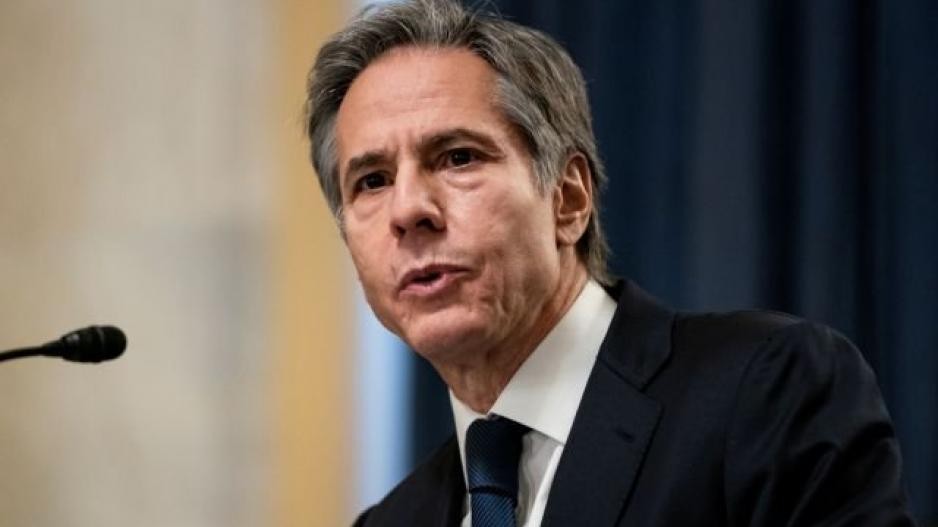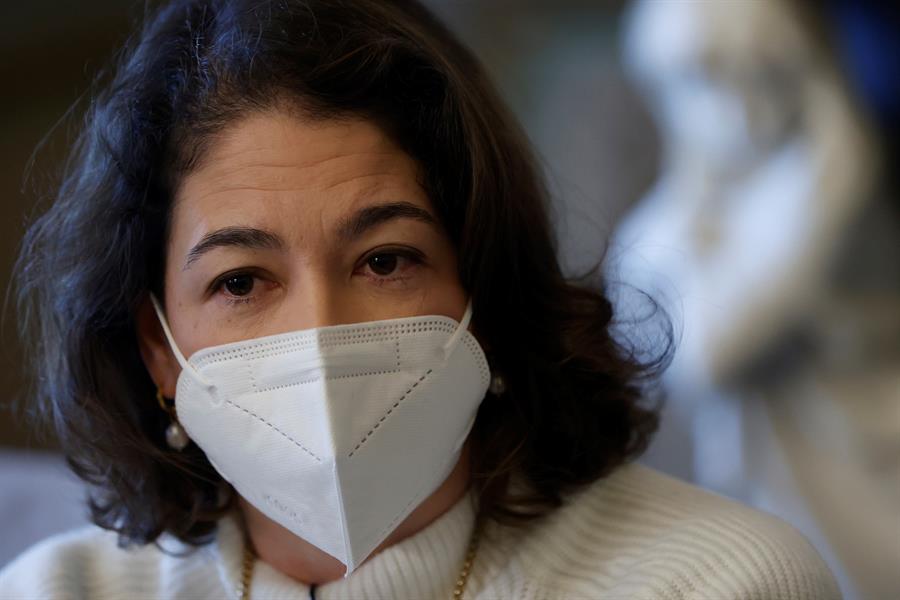The US lowered expectations on Sunday for the meetings it will have with Russia from Monday due to the crisis in Ukraine and affirmed that it does not expect any “relevant progress”, although the White House says it is willing to negotiate with respect to missiles. and military maneuvers.
“I don’t think we are going to see any relevant progress this week. We will put things on the table, and the Russians will do the same, and we will see if there is enough space to move forward,” the Secretary of State said in an interview on CNN. American, Antony Blinken.
The Secretary of State also reiterated the idea expressed on several occasions by the US government that Russia has “two paths” in front of it: that of dialogue and diplomacy or “that of confrontation and massive consequences if it renews its aggressions on Ukraine.”.
“We are about to see what path President Vladimir Putin is willing to take,” he added.
In another televised interview also on Sunday morning, in this case on ABC, Blinken explained that the areas to be explored between the two countries are “measures that contribute to building trust and reducing risk” provided they are mutually adopted.
For its part, Russia faces security negotiations with the US with an unshakable stance on non-interference by NATO in its backyard, especially Ukraine, and with the feeling that its results will mark relations with the West for the next few years. years.
“We will not make any concessions,” warned Sergei Riabkov, Russian deputy foreign minister and chief negotiator in negotiations with the US in Geneva (Switzerland) on Sunday.
MISSILES AND MILITARY MANEUVERS
The United States government indicated on Saturday that the deployment of missiles in Europe and the military exercises are two areas in which they foresee that “understandings” with Russia could take place.
“We are open to talking about it because we believe that progress can be made, although yes: always in consultation with our allies and always reciprocally,” he said in a phone call with journalists, including Efe, a senior administration official. American.
For its part, the Kremlin has already announced that it wants to agree with Washington and NATO a new framework for security in Europe, in such a way that the United States joins its unilateral moratorium on the placement of short and medium-range missiles in the United States. continent and the Alliance move their military maneuvers away from the Russian borders.
High-level delegations from the United States and Russia will hold strategic dialogue in Geneva on Monday in which they will try to reduce the current tensions on the Ukrainian question, although this effort will continue multilaterally throughout the next week in Brussels and Vienna.
The US Undersecretary of State, Wendy Sherman, and the Russian Vice Minister of Foreign Affairs, Sergey Riabkov, will lead the delegations that will meet in Geneva, which will seek to continue the rapprochement initiated with the summit between the presidents of both countries in June 2021 in the Swiss city.
RED LINES FOR USA
The top US government official, however, pointed out that an area in which they are not willing to compromise is a possible Ukraine rapprochement with NATO, since “Russia cannot decide whose they are or cease to be. allies other countries “.
In their conversation last week, US President Joe Biden and Russian President Vladimir Putin recognized that “there are areas where significant progress can be made” and that there are also other areas where agreements “may be impossible,” according to the version that the White House gave.
The US president also warned his Russian counterpart of a “decisive” response in the event that Moscow attacks Ukraine, to which Putin threatened a “total” breakdown of relations if that happened, according to the Kremlin’s version.
Although Russia prioritizes dialogue with the United States, it has also agreed to meet with the Atlantic Alliance in Brussels next Wednesday, within the framework of the NATO-Russia Council, after many offers from the organization’s secretary-general, Jens Stoltenberg, in recent years.



















































































